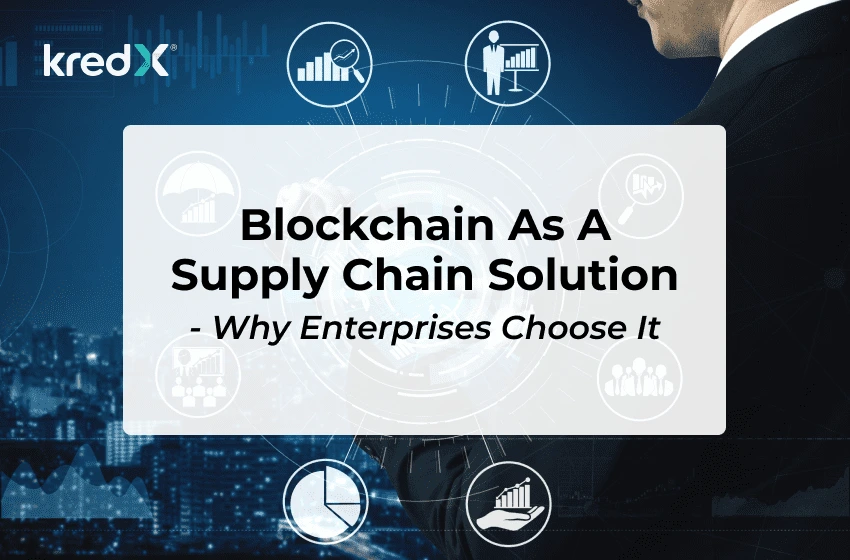
Blockchain As Supply Chain Solution- Enterprises Take
Blockchain is still a new technology, but the recent partnership between IBM and Mahindra Finance for developing Blockchain technology for small and mid-sized enterprises loans for business has asserted the importance of the technology in Supply Chain Management.
Why is Blockchain Important?
Here is why blockchain is important –
- Blockchain architecture can help enterprises process payments in real-time. This reduced the time invested in payment processing and approval.
- Blockchain can bundle and sell invoices at a discount to manufacturers using a distributed ledger mechanism facilitating faster payments. Traditionally supplier to supplier-to-manufacture invoice discounting can be extremely slow and requires multiple books. With a shared ledger system, all parties can witness the operations and settlements, removing the human error factor.
- Using blockchain, the supplier can trade directly with any counterparty around the world without worrying about security, speed or cost of the process.
What is Blockchain?
‘Block’ in Blockchain is made up of three key components: a transaction, a transaction record and the system which verifies and stores the transaction. Open Source Software is used to generate and record information about the transaction; when it took place and the chronological order of all transactions. This results in a sequence of information called ‘chain’ and hence the term ‘blockchain’.
How Blockchain Works?
Every block has information that can be attached with smart contracts using hashes. These smart contracts can represent, for example, a contract or ownership title. It can also represent physical goods, via a barcode or quick response (QR) code. Users can thereby access this blockchain via a web interface and have a wallet in order to communicate with each other. The information is tamper-proof and visible to all parties involved.
Blockchain Applied to Supply Chain Finance
Having outlined the basics of blockchain, how can this be applied to supply chain finance (SCF)? Supply Chains are complex in nature as various parties are involved from goods suppliers to manufacturers, distributors and consumers.
As multiple parties are involved in the supply chain, each party takes care of financing at individual levels and this itself can create a mismatch. An actual trade between a buyer and seller in different countries, involves multiple intermediaries like the banks of the buyer and seller, respectively.
Blockchain could ensure the security of sharing information without going through the cost, expense and delay of negotiating formal contracts or paperwork such as the Letter of Credit (LC) from a bank or a bond for a transportation provider. As the information will be stored in a web interface, their privacy and accountability are maintained by miner accountants rather than by counterparty or a third party such as a bank.
There are multiple servers involved for information storage. The supplier loads data on one server and the buyer views information on another. The information is not visible to anyone except the parties involved, as every piece of information is converted to codes. The validation of Blockchain transaction, that is information exchange is done by incentivised proof-of-work by the Bitcoin miners, who basically publish the block with a hash to the rest of the peer-to-peer network that makes up the blockchain, hence getting paid in Bitcoin.
While blockchain technology is still in exploratory stages, there is tremendous potential for it to transform into a mainstay in supply chain finance. The implications and mass-scale adaptation are yet to be seen, but this is a technology to look out for by every Enterprise.



